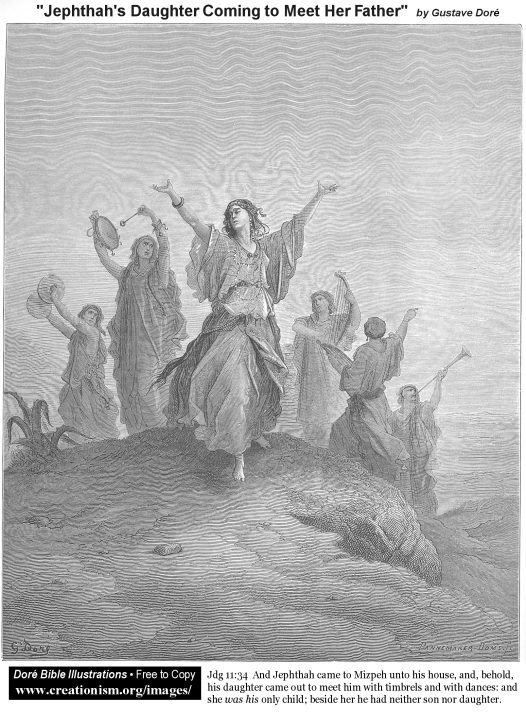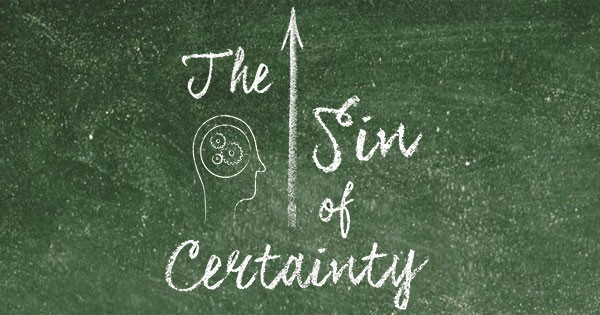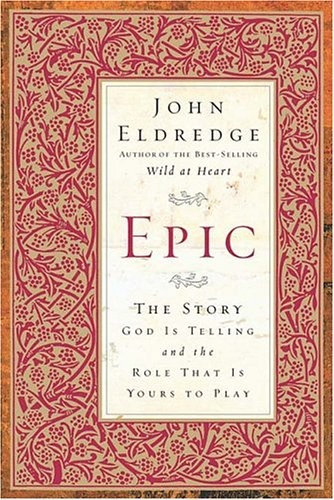Re-post 2: Thoughts on Judges
This post was originally published January 9, 2008. It’s one of the posts that were lost in the transition between domain names and blog hosts, but are backed up in a Word file on my hard drive:
I finished Judges, and felt so sick to my stomach I went on and read the whole of Ruth to wash the taste away. (Ruth is a welcome diversion – a love story with a happy ending – after the sordidness of Judges.) Here are some observations about Judges:
1. There’s always a hero. Even though we’re told several times that every man is doing what seems right in his own eyes, God doesn’t abandon Israel. He sends a succession of imperfect heros, like Jephthah or Samson. Jephthah is listed in the Hall of Faith in Hebrews, despite his (surely!) mistake in believing God would expect him to remain faithful to his vow when it meant killing his own daughter. And look at Samson as an example:
- he doesn’t learn from his mistakes, but makes poor choices of wives more than once;
- he’s manipulated by women more than once, first giving away an unimportant secret (the answer to his riddle), then an important one (the secret of his strength);
- he relies on brute strength, not reflection or prayer (except at the very end. He prays then.);
- he’s more a childish vandal than a great warrior, beating people up with a donkey’s jawbone, or using live foxes as fuses to ignite a grain field.
Yet God fulfills the limited purpose He described for Samson: “He will begin the deliverance of Israel from the Philistines” (Judges 13: 4). Which brings us to:

2. God works in historical stages. He doesn’t save this nation all at once with a strong leader, any more than He saved the human race until “the fulness of time had come.” There are factors we can’t necessarily see that He’s considering, and working willingly within.
3. God is patient. We all know this. But here I’m especially glad He sent the covenant rainbow after the great flood, because surely when He observes the action of Judges, He’s tempted to revisit His state of mind in Genesis 6: 5,6: “The Lord saw how great man’s wickedness on the earth had become, and that every inclination of the thoughts of his heart was only evil all the time. The Lord was grieved that He had made man on the earth, and His heart was filled with pain.” What a relief that He is faithful, and keeps His promise to Noah.
4. Women seem to bear the brunt of human fallenness. There’s Jephthah’s daughter, sacrificed because she’s the first thing out the door of his house, and he knows God so little that he thinks keeping his foolish vow is more important than a human life. The Levite’s concubine is willingly handed over to a mob that assaults and kills her. After the ensuing war, the Israelites concoct a plan that involves the Benjamites kidnapping girls on the way to a religious festival so they can have wives and preserve the tribe. I’m very grateful for episodes like the Samson story, which show God doesn’t sanction this culture’s way of treating its women.
5. I’m just thinking of this as I type, but I find the placement of the story of Ruth healing. These tales of brutality toward God’s daughters are immediately followed by a story of womanhood at its gentle best, protected and cared for by God in ways that prefigure His masterpiece of redemption.
Here’s a painting by Corinth Lovis called “Samson Blinded” (1912). Some of the images I found picture Samson displaying his brute strength: killing the lion, breaking the pillars of Dagon’s temple, or standing triumphantly over a field of dead men brandishing a donkey’s jawbone. Most artists seem to have envisioned him with his eyes closed, sleeping on Delilah’s lap. To me, though, this one seems like the most fitting emblem for the book of Judges, which suggests the best verdict on “every man doing what’s right in his own eyes” is to gouge them out and let God do the leading.



2 Comments
Barbara H.
Hmm…my comment disappeared. If it somehow comes through twice, feel free to delete this one.
I appreciate the thoughts in this post. One other thing Judges reminds me of is that no matter how awful people are acting, God is still at work.
Your last line reminds me of Jesus’s admonition to pluck out our eye rather than let it lead us to hell.
When you say that you’ve backed up your blog in a Word file, do you mean you’ve copied and pasted individual posts or that your whole blog is there? I’ve copied some of the posts I most want top remember but don’t know how to back up the whole blog especially as mine is free and hosted and maintained by WordPress.
Janet
After having some bad experiences with losing content, I went through a time of actually cutting and pasting posts into word files periodically. It’s been a long time since I’ve done that, because I feel more confident about my blog host. I’m glad to still have some of these older posts though. When I feel uninspired, it’s fun to go back and see my original exuberance about writing and blogging. It can be a shot in the arm.
There is an export feature in WP.com blogs that would allow you to export a copy of your blog to your hard drive. It wouldn’t actually be readable unless you then imported it into another online location, but it would ensure that your content was saved somewhere. It’s under the “tools” tab in your dashboard.
The catch for me has been that the whole blog didn’t get saved. Maybe the export feature only works within a certain memory allotment.